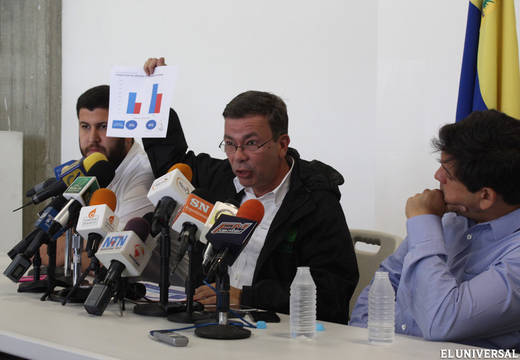
EspañolVenezuela is a decentralized republic, both politically and administratively, according to the oil-rich country’s Constitution.
However, according to the Venezuela Mayors Association, President Nicolás Maduro intends to bring this decentralization to an end.
The mayors association is an organization created this year that includes 76 opposition mayors. They say deficits at both the local and national government level threaten the existence of local municipalities, especially smaller towns in the interior of the country.
“With inflation of 70 percent in a country where the national currency is steadily losing value, obviously the financial situation of the municipalities is precarious,” said Carlos Ocariz, mayor of the city of Sucre in the state of Miranda. “The municipalities that find themselves in the worst situation are the country’s 300 smallest local governments. This is a problem that affects all of the country’s municipalities, and on behalf of all of the mayors, we want to explain this situation to the national government.”
“In Sucre, the national government said they would allocate 334 million Bs. (US$4.17 million), yet they only sent us 27 million Bs. (US$337,500). These are promises our own government has made, and has failed to uphold. We have a deficit of 304 million Bs. That is very difficult to cover. The problem in the short term is that we are not able to proceed with the salary increases that the government has mandated.”
Mayor Ocariz explained that these deficits will eventually force many municipalities to close down over the long term, unlike the federal government. “The difference between the central and local governments is that the central government is able to finance their debt, but the local governments cannot…. All of this makes the municipalities suffocate to the point of bankruptcy.”
. @GustavoMarcano "No podemos cubrir incremento salarial si el EjecutivoNacional no transfiere los recursos q por ley corresponde" #Lecheria
— Lechería (@yosoylecheria) August 19, 2014
The mayor of Sucre also asked the national government to alter the price of oil in the national budget — calculated at US$60 per barrel in 2014, when the price is actually $105. He says the ultimate goal is to ensure a better and more equitable distribution of resources, and additional credit, for all local governments.
“For example, with the additional credit approved last week, not all municipalities received the same amount. We do not know why certain municipalities receive more than others at the political discretion of the national assembly…. We are asking that they respect the constitution, and we are demanding what rightfully belongs to our neighbors,” added Ocariz.
The scene in Sucre is repeating itself even more dramatically in the Mario Briceño Iragorry municipality in the state of Aragua, located in the central region of Venezuela.
“They want to strangle our municipality, make it go away. Of the 5,587,705 Bs. (approximately US$70,000) requested to pay for the 30 percent increase in salary demanded by the national government, they have only delivered 943,420 Bs. (almost US$12,000). What’s more, we are the only municipality that has not received money from the Inter-territorial Compensation Fund, allocated to finance public investment to promote the equal development of all regions,” mayor Delson Guarate explained to the PanAm Post.
Guarate added that his city will continue to fight for the grievances of his constituents. He plans to take his complaint to the Supreme Court, where he will seek constitutional protection.
He did not discount a hunger strike as a potential option to leverage his cause. “We will not back down to this policy of attrition waged against opposition leaders. Our only sin was that we won an election against the ruling party (PSUV). We cannot allow ourselves to be divided into first and second class citizens. Dialogue is the only path out of the crisis.”
El sabotaje hacia gestiones locales de oposición es una política de ahogo por MIEDO a la eficiencia de nuestra gerencia junto al pueblo
— DelsonGuarate (@DelsonGuarate) August 19, 2014
William Requejo, president of the Neighborhood Union for Public Participation, explained to the PanAm Post that it was the removal by decree of the Parochial Board, which gave way to the so-called Community Councils, that turned municipal governments into the first point of contact between citizens and their government.
“They are institutions that should be improved, but never eliminated. It took many years of fighting to get the decentralization of Venezuela. Only the citizens can remove the mayors,” declared Requejo, whose organization maintains a presence in 14 Venezuelan states.
In the coming days, the Venezuela Mayors Association will ask to meet with representatives of the national government in order to make them aware of the severity of the budget shortfalls of local municipalities.
 Versión Español
Versión Español












